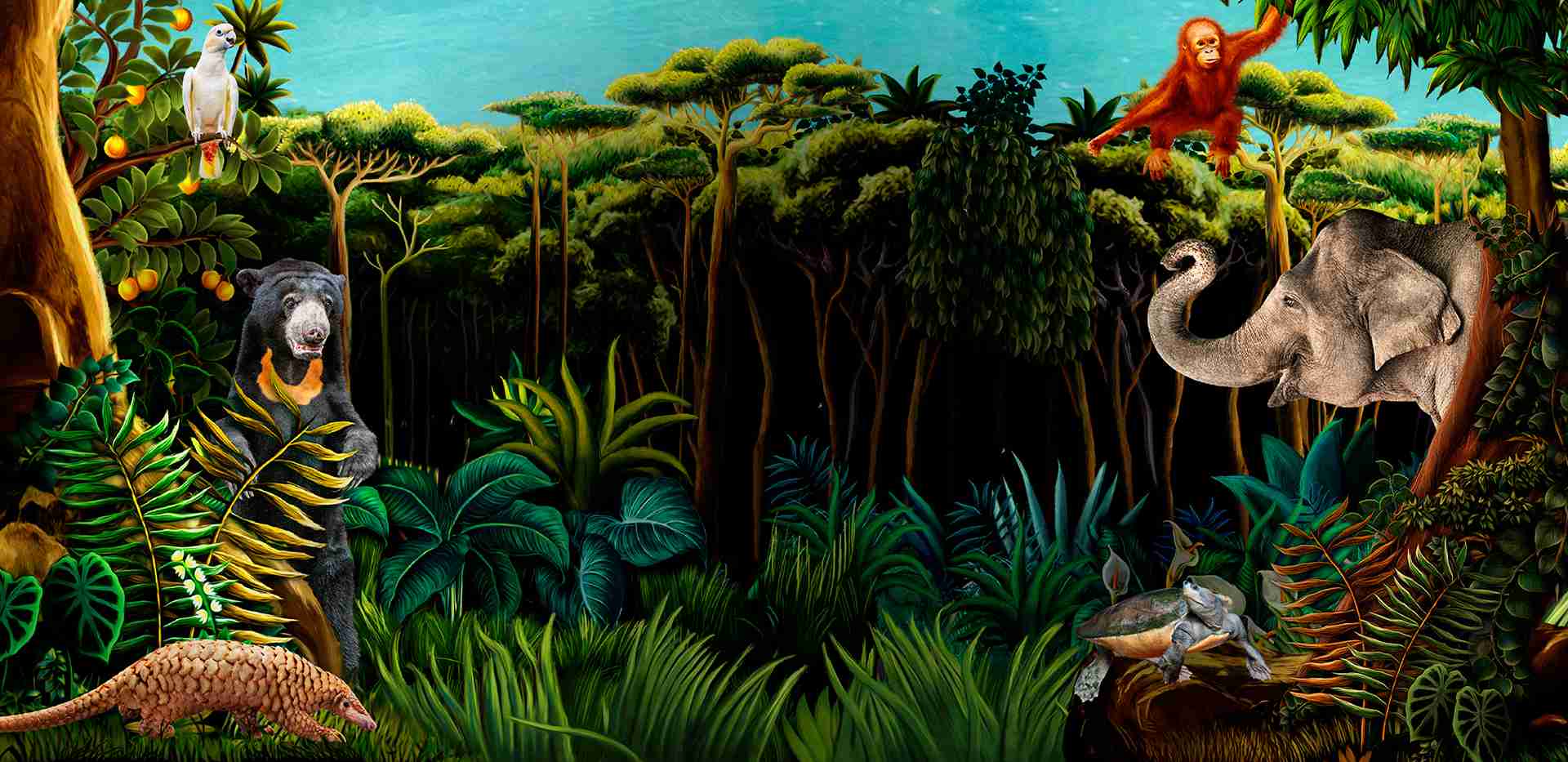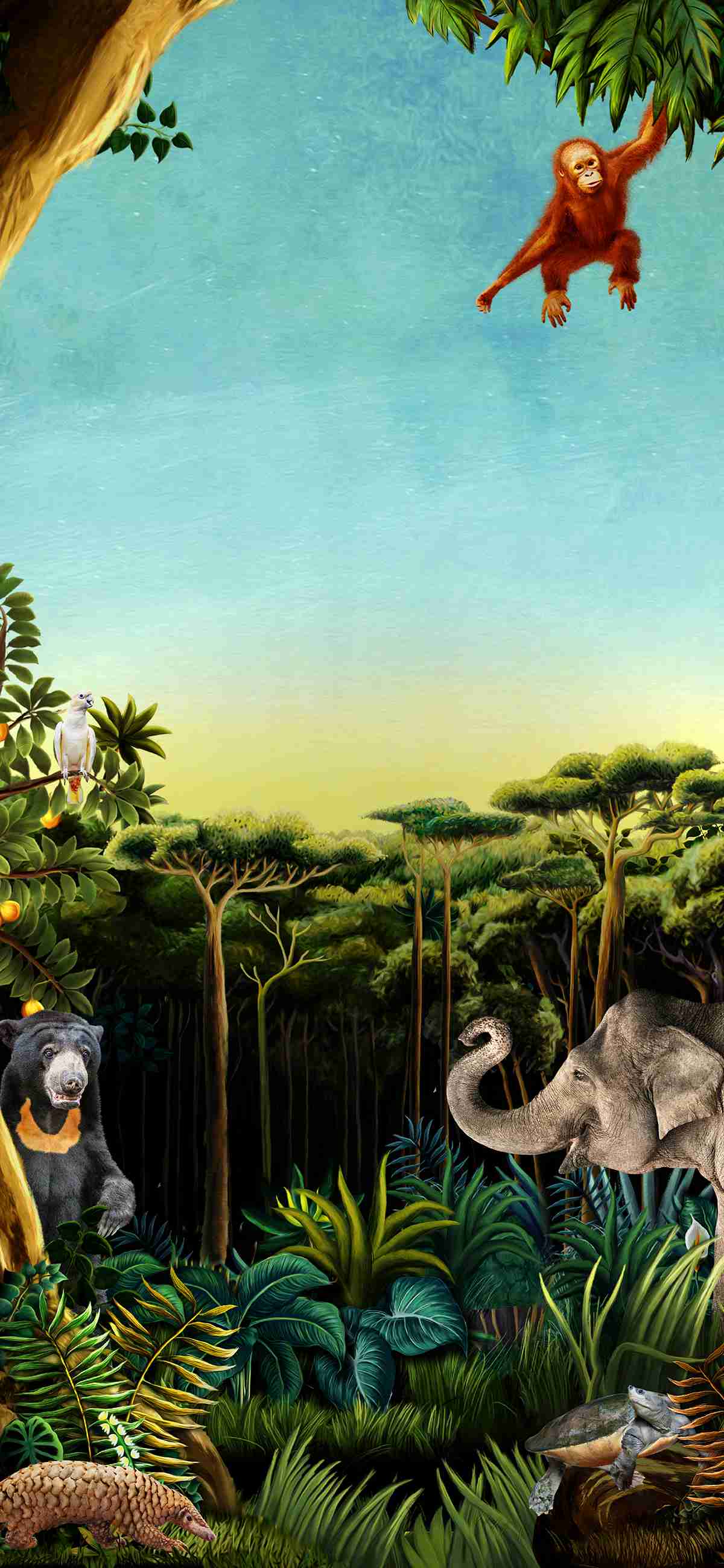Strong enamels make happy animals
Dr Charlene Yeong, Manager, Conservation, Research and Veterinary Services, WRS, assists Dr Cedric Tutt, Veterinary Dental Specialist from The Veterinary Dentist, as he examines the gap between the incisors of Fabel, a falabella mare in Singapore Zoo. One of the smallest breeds of horse, falabellas have the same number of teeth as other horses but in a much smaller mouth, making them more prone to overbites and underbites.
PHOTO CREDITS: WILDLIFE RESERVES SINGAPORE
Every animal under the care of WRS has a health surveillance regime, and dental examinations are part of it. During these examinations, WRS’ vets check for presence of tartar and oral diseases such as cavities, abscesses and gingivitis, which can be treated with early detection. These are potential indicators of other health issues, and if left alone, can lead to life-threatening conditions.
“Every animal that comes into the hospital will have their teeth looked at. Dentistry is more complex in animals than in humans, because wildlife instinctively disguise their vulnerabilities to protect themselves from other predators. Apart from scheduled checks, the animal care team closely monitors our animals’ behaviour for signs of discomfort. We want to be able to deal with any dental issues in a timely manner and not compromise on animal welfare”, explains Dr Heng Yirui, Veterinarian at Wildlife Reserves Singapore. “Animal species also have different dental layouts which may require distinct methods of treatment and examinations.”
With good dental health, animals and humans alike would lead a better quality life. Follow in the footsteps of WRS’ animals and maintain a healthy mouth by practicing good oral hygiene. Be sure to brush and floss regularly, eat well and avoid high sugar foods that can cause cavities. Visit the dentist regularly!
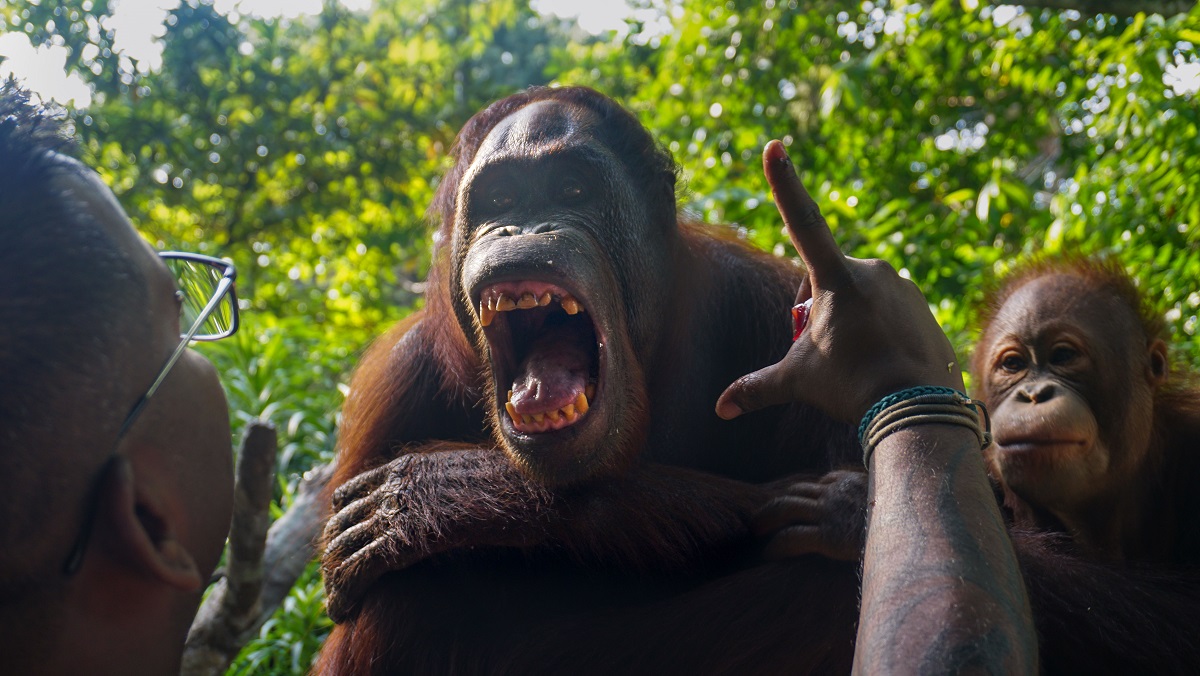
Kumaran Sesshe, Head Keeper of Great Apes, Singapore Zoo, checks Binte the female orangutan’s teeth by giving her a cue to open her mouth. Training animals to open their mouths voluntarily and on cue allows for a stress-free way for keepers to check their animals’ dental health on a regular basis
PHOTO CREDITS: WILDLIFE RESERVES SINGAPORE
Singapore Zoo’s Sumatran orangutan Charlie underwent a routine oral health assessment. The team also took the opportunity to scale and polish his teeth.
PHOTO CREDITS: WILDLIFE RESERVES SINGAPORE
Night Safari’s Brushtail possum getting its teeth examined.
PHOTO CREDITS: WILDLIFE RESERVES SINGAPORE
Amor, River Safari’s jaguar was diagnosed with a fractured tooth. Rather than removing its tooth, a root canal treatment was done to restore the crown. All felines have the same number, shape, and arrangement of teeth. The roots of a human tooth grow up to 2cm while a jaguar’s can go up to 12cm.
PHOTO CREDITS: WILDLIFE RESERVES SINGAPORE
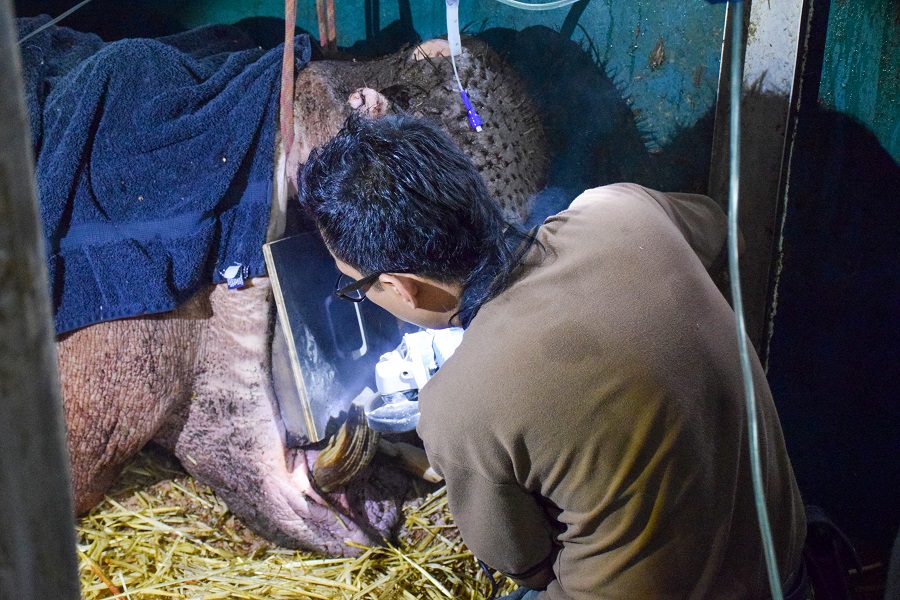
Kassim, Night Safari’s 21-year-old Nile Hippopotamus faced the problem of an overgrown canine that pierced through his upper lip. Nor Sham, Senior Veterinary Nurse, WRS, uses a mechanical saw to trim off a portion of the overgrown tooth. Overgrown teeth in hippopotamuses can make it difficult for them to close their mouths and chew their food properly. Keepers look out for signs of potential dental issues in their animals which include spitting out their food, eating slower or favouring one side of the mouth when chewing. Animals with dental issues may also avoid eating harder foods and favour softer items.
PHOTO CREDITS: WILDLIFE RESERVES SINGAPORE
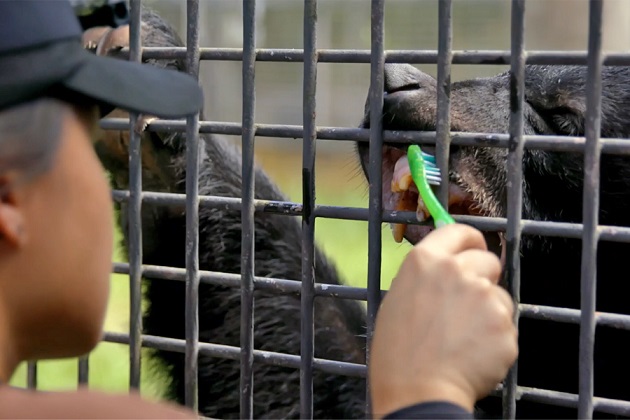
Night Safari’s Asiatic black bear gets its teeth brushed by its keeper. Operant conditioning is used by WRS keepers to train its animals to get accustomed to health checks without sedation. In some cases, daily teeth brushings are part of the animal’s overall care routine. Conditioning reduces stress for the animals who voluntarily participate in the procedures
PHOTO CREDITS: WILDLIFE RESERVES SINGAPORE
